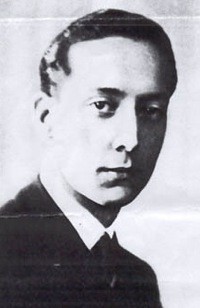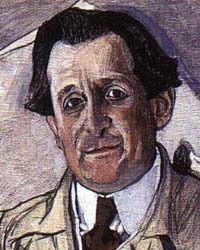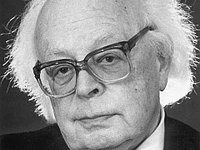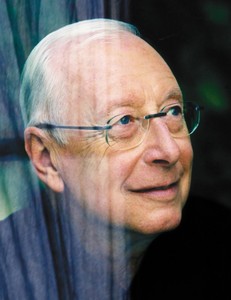
Willy Ferrero |
Willy Ferrero


The name of this major Italian conductor is well known all over the world. But he enjoyed the especially warm love of the listeners, perhaps no less than in his homeland, in our country. The old-timers of Moscow concert halls had a happy opportunity to follow the creative development of the musician for many years, with the joy of being convinced that he had grown from a child prodigy into a magnificent and original master.
Ferrero first performed in Moscow before the First World War, when he was only seven years old, shortly after his debut in Rome’s Costanzi hall in 1912. Even then, he impressed the audience with exceptional musicality and outstanding conducting technique. The second time he came to us in 1936, already a mature artist who graduated from the Vienna Academy of Music in 1919 in composition and conducting classes.
By the mid-thirties, the art of the artist was recognized in many countries. Muscovites were glad that his natural talent was not only preserved, but also enriched with artistic skill. After all, great artists do not always grow out of miracle children.
Ferrero was met with excitement in Moscow for the third time, after a fifteen-year break. And again, expectations were justified. The success of the artist was huge. There are lines at the box office everywhere, overcrowded concert halls, enthusiastic applause. All this gave some special festiveness to Ferrero’s concerts, created an unforgettable atmosphere of a significant artistic event. This success remained unchanged during the next visit of the artist in 1952.
How did the Italian conductor conquer the audience? First of all, extraordinary artistic charm, temperament, originality of his talent. He was an artist of high will, a true virtuoso of the conductor’s baton. The listener, sitting in the hall, could not take his eyes off his slender, dynamic figure, from his extremely expressive gesture, always precise, saturated with emotionality. At times it seemed that he was conducting not only the orchestra, but also the imagination of his audience. And this was the almost hypnotic power of his influence on the listeners.
It is natural, therefore, that the artist achieved real artistic revelations in works full of romantic passion, bright color, and intensity of feelings. His creative nature was akin to festivity, a democratic beginning, the desire to captivate and capture everyone with the immediacy of experience and the beauty of the images he created. And he successfully achieved this, because he combined the thoughtfulness of creative intentions with the elemental force of temperament.
All these qualities are most clearly manifested in the interpretation of small symphonic pieces – overtures by Italian classics, excerpts from operas by Wagner and Mussorgsky, works by Debussy, Lyadov, Richard Strauss, Sibelius. Such popular masterpieces as the overtures to the operas “Signor Bruschino” by Rossini or “Sicilian Vespers” by Verdi, as well as the waltzes by Johann Strauss always sounded wonderfully with Ferrero. An extraordinary lightness, flight, purely Italian grace was put into their performance by the conductor. Ferrero was an excellent interpreter of the French Impressionists. He revealed the widest range of colors in Debussy’s Festivities or Ravel’s Daphnis and Chloe. The real pinnacle of his work can be considered the performance of “Bolero” by Ravel, symphonic poems by Richard Strauss. The tense dynamics of these works has always been conveyed by the conductor with amazing power.
Ferrero’s repertoire was quite wide. So, along with symphonic poems, orchestral miniatures, he included large-scale works in his Moscow programs. Among them are the symphonies of Mozart, Beethoven, Tchaikovsky, Dvorak, Brahms, Rimsky-Korsakov’s Scheherazade. And although there was a lot of unusual and sometimes controversial in the interpretation of these works, although the conductor was not always able to capture the scale and philosophical depth of the monumental works of the classics, however, even here he managed to read a lot in his own wonderful way.
Willy Ferrero’s Moscow concerts have written indelible lines into the glorious annals of the musical life of our capital. The last of them took place shortly before the untimely death of a talented musician.
L. Grigoriev, J. Platek





